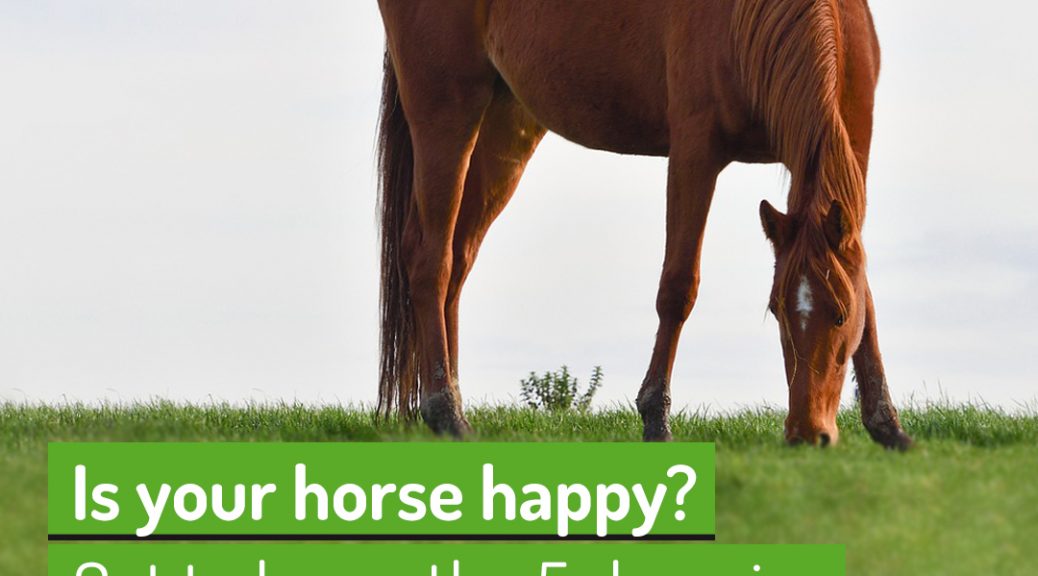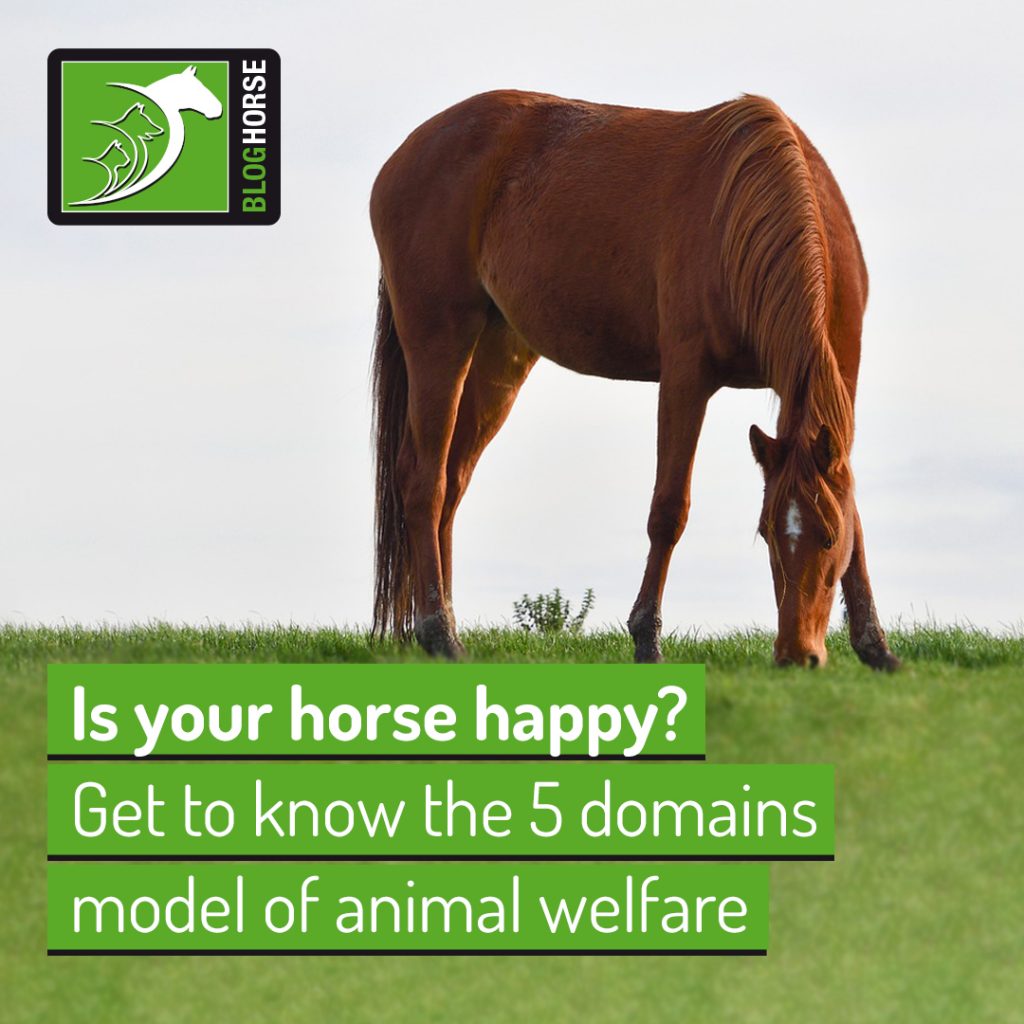Though there’s no such thing as a recipe for equine happiness, there are some basic ingredients that need to be in the mix! These include adequate health care, gentle handling, balanced nutrition, and an environment that allows for quality interactions and all the opportunities required to express their natural behaviour.
Keep reading to learn more about the five domains model of animal welfare and how you can improve your horse’s quality of life!
What are the five domains?
The five domains represent an animals’ five basic welfare needs:
- Balanced nutrition
- Preventative and responsive health care
- Adequate, safe and rich environment
- Quality behavioural interactions
- Positive mental state
These are universal to all animal species and were compiled in the 1960s as the five freedoms in response to the livestock production practices at the time.
Over the past 60 years, this concept has evolved alongside our knowledge of animal health, welfare, and behaviour and has since been used to help guide us in caring for animals respectfully!
Nutrition
We are what we eat, and the same is true for horses. A balanced diet is one of the most important pillars of a healthy life, and this involves:
- A high-quality forage-based diet tailored to the individual horse
- The correct amount of food and number of meals
- Clean, fresh water that is always available
Adequate nutrition has an integral part in preventing health problems, such as colic, ulcers and obesity, as well as behavioural issues, as you can stimulate horses’ natural foraging behaviours depending on how you’re providing them with food.
Health care
If your horse is unwell, this will obviously have an impact on their well-being. Conducting a daily health check can be instrumental in seeking veterinary help early. Here are some of the most important aspects to be mindful of:
- Their demeanour and if they are behaving normally
- How their body looks (posture, condition, hydration) and feels (temperature, swelling)
- Any injuries that may be present (making sure to check the mouth and feet)
As for preventative care, vaccinations and parasite treatments are vital for protecting your horse against a range of diseases, and your vet will be happy to arrange a tailored plan for your animal’s specific needs.
Environment
Providing your horse with an adequate and rich environment where they are safe from the elements and predators, and are able to display their natural behaviour is paramount.
Here are some aspects to consider:
- Is their pasture cared for?
- Is the horse free to move around?
- Do they have a comfortable place to rest?
- Is their access to forage and water adequate?
- Do they have the opportunity to explore their environment?
- Can they interact with other horses?
- Could they benefit from environmental enrichment?
Though general recommendations are great as a starting point, tailoring your horse’s environment to their personality and character can make a world of difference in their happiness, and you’re the best person to know how to do this!
Behavioural interactions
As social animals, horses enjoy the company of other horses and need friends to socialise with.
Though they will be happy just being near other horses, physical contact is very important, too, which is something that naturally happens if they’re allowed to bond.
As for human-horse interactions, it’s key that you have a good understanding of equine behaviour so that you can learn to recognise what your equine friend enjoys doing and provide them with pleasant experiences.
Exploring their environment is another way that horses like spending their time, so make sure they have the opportunity to exercise and move freely.
Mental state
If you do a great job at managing the previous four domains, the result will be a positive mental state, which is what every horse owner is aiming for!
However, sometimes horses can still develop behavioural issues or suffer from high stress despite our best efforts. This may be due to many things, from an undiagnosed illness to a particular need that you didn’t know your horse had that isn’t being met.
These types of problems often take time, patience and the proper professional help to resolve, so don’t hesitate to contact your vet if you are struggling!
Keep an eye on our blog if you’d like to know more about each of the five domains, as we’ll be going into a detailed discussion in upcoming blog posts!
Would you like to know more about horses? Check our Equine Courses:
Equine courses

